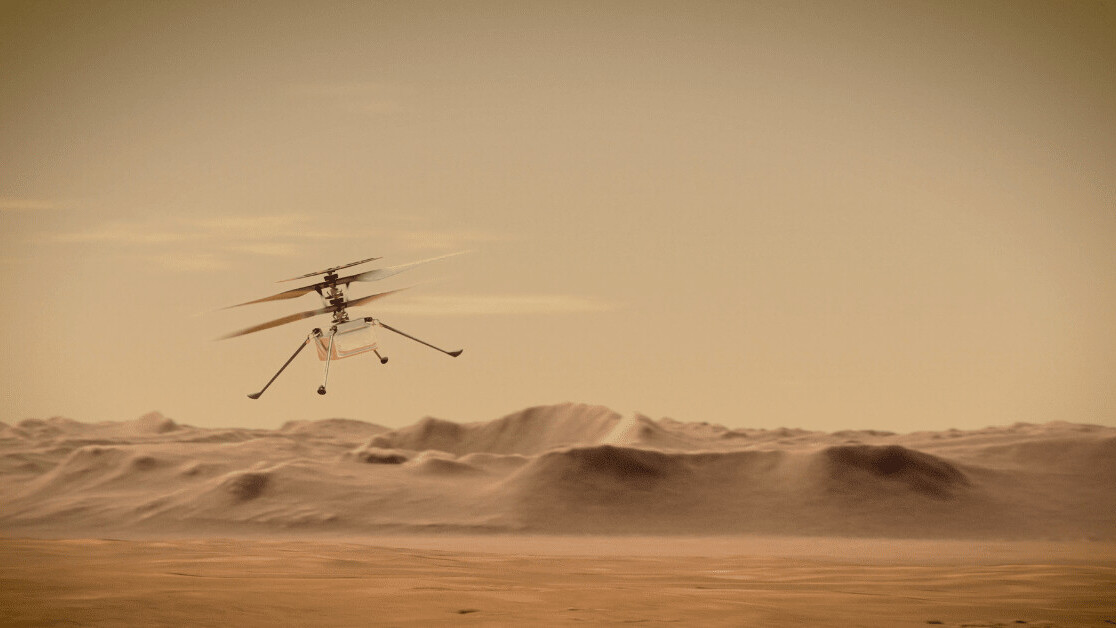
If you’ve got a new Android phone, its processor is probably more advanced than the one that will control the first-ever flight on Mars.
NASA’s Ingenuity helicopter, which is slated to make its maiden voyage on the red planet on April 14, is powered by Snapdragon’s 801 processor — the same chip used by a slew of phones released in 2014 and 2015.
The system runs an integrated board called the Qualcomm Flight Platform, which will operate the autonomous flight.

While staff at NASA’s Jet Propulsion Laboratory (JPL) will plan the chopper’s route, the flight will be autonomous due to communication delays. Radio signals will take over 15 minutes to travel the 173 million miles between Earth and Mars.
[Read: NASA unveils plans for first-ever flight on Mars]
“There’s no fly-by wire, there’s nobody remote controlling, so most of the intelligence has to be done on the platform,” Dev Singh, Qualcomm’s GM of robotics, drones, and intelligent machines, tells TNW.

Qualcomm’s platform will process information captured by two cameras and multiple sensors attached to the 1.8-kilogram helicopter. This data will feed back into the algorithms that guide Ingenuity’s movements.
If obstacles or conditions on Mars set the drone off course, the system will adjust the controls.
“Our entire flight model is based on the sensors onboard as well as the computer vision — what I like to call flight by sight,” says Chris Pruetting, senior director of business development for Qualcomm Government Technologies.

Qualcomm Flight is also used in the communication system of the Perseverance rover, which gave Ingenuity a ride to the red planet.
On the buggy, the platform will process photos taken by the helicopter before they’re sent back to Earth.
“Those of us here are really excited about the pictures that Ingenuity takes,” says Pruetting. “The folks at JPL are really excited about all the data that comes back as part of that because they’re going to learn a lot about spaceflight on Mars.”
NASA will use the insights to develop more advanced helicopters, which could access areas of Mars that ground vehicles can’t reach.
Greetings Humanoids! Did you know we have a newsletter all about AI? You can subscribe to it right here.
Get the TNW newsletter
Get the most important tech news in your inbox each week.





